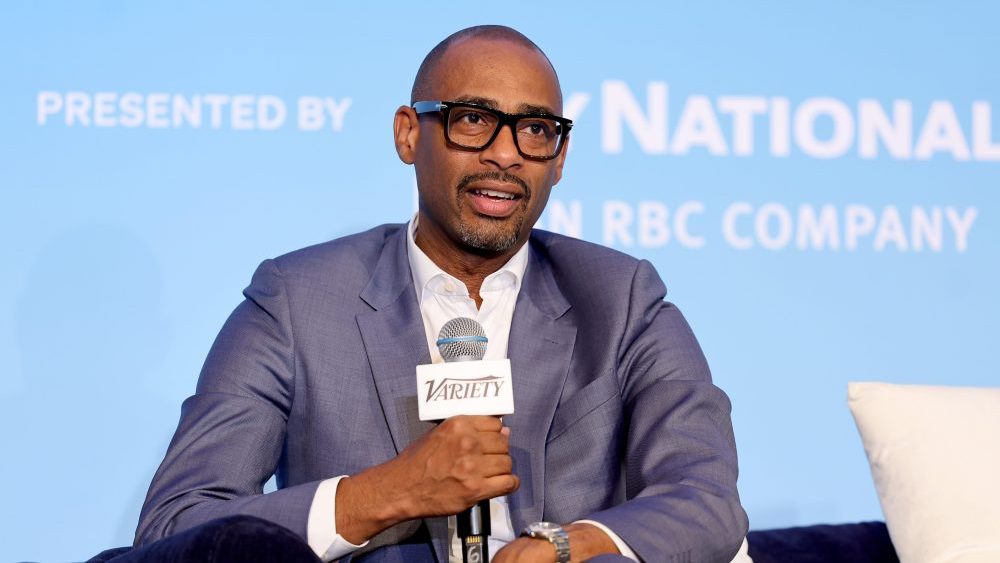Just a few months after Macro lined up a new $90 million round of investment, Hollywood went on strike. Charles D. King, Macro’s CEO and founder, has been using his entrepreneurial drive to make the best of a tough situation.
“When there are moments of chaos, we find opportunity,” said King in a conversation at Variety’s Entertainment and Technology Summit Thursday. The talk was moderated by Variety’s senior entertainment writer Angelique Jackson. “That’s the time you can actually afford to fly and get stronger. And so, you know, we haven’t slowed up even this year, despite all the different challenges that have happened over the course of last three years.”
This year, Macro Media was behind the Jamie Foxx-led Netflix release “They Cloned Tyrone,” a black sci-fi comedy about a government conspiracy in a Black neighborhood. Previously, Macro has been behind similar projects surrounding Black culture in America like 2021’s “Judas and the Black Messiah,” 2018’s “Sorry to Bother You” and 2016’s “Fences.” When asked how the company decides which projects to green light, King explained that Macro prioritizes entertainment that will create opportunities not provided elsewhere in Hollywood.
“We said, we’re gonna be focused on stories that would represent all people of color. African American, Latinx, AAPI communities, Indigenous and also globally,” he adds. In order to get these projects off the ground, King says Macro seeks out production partners that have the resources to help tell stories “on a global scale” whether that be “local language productions” or working with a larger “global storyteller.”
With the power to launch and finance projects that highlight and collaborate with communities of color, King sees Macro as a vessel to provide a foundation for diversity and representation in the entertainment industry. “I saw from my 20-plus years as a senior partner at WME just the lack of opportunity for diverse voices purely throughout the industry,” he says.
“We’re all unicorns in and of themselves, in our industry, who’ve had experiences, many of whom could have their own company,” he adds. “But instead, we all came together to build this. It’s not about any one of us, including myself. So yes, having capital is a huge part of it. It’s a major part of it, not only for productions, but developing IP, and thinking about other business lanes and avenues to go into as we scale.”




